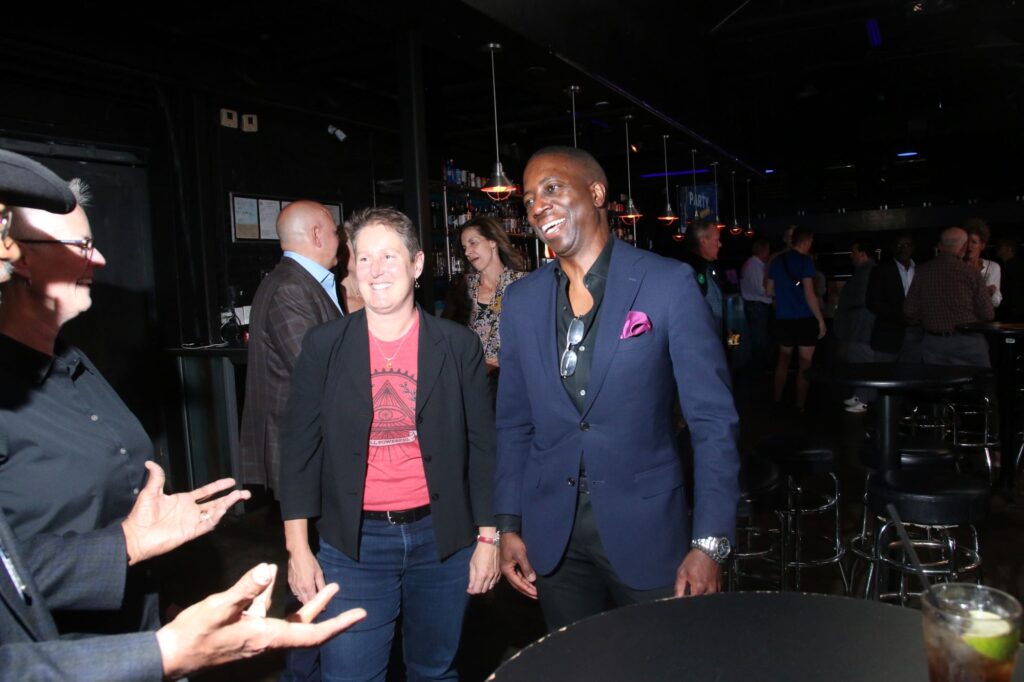It was expected to be a fairly close contest, considering the results of the municipal election in April, but by the time the first ballots had been counted, Darrell Watson had a commanding lead over incumbent Candi CdeBaca in the District 9 City Council election.
Watson secured just over 60% of the vote on Election Night compared to CdeBaca’s 40%, a considerable change from the general election, where CdeBaca narrowly led Watson but didn’t reach the 50% threshold, forcing a runoff.
The third candidate from the general election, Kwon Atlas, endorsed Watson. Both candidates had campaigned hard on ensuring more affordable housing for Denver residents as their primary issue. CdeBaca had criticized the city council’s adoption of the Expanding Affordable Housing ordinance, which committed developers to creating income-restricted housing or risk paying a fee, but she said that it didn’t go far enough in providing housing for the poorest of residents.

“I’m proud of what my team and I accomplished over the last four years: We have been building the best world possible with what resources we have, and we have been fighting for what everyone deserves,” CdeBaca wrote on social media. “I will not stop fighting alongside my community for a city that truly cares for all of its people, because District 9 and Denver are my heart, always.” Election results are to be certified by June 20.
Watson told the Gazette after election night that he had an “amazing” team that was proactive in finding out what residents need in District 9.
“We listened closely and carefully (to residents) in every neighborhood in District 9, and we were ecstatic that they were talking about the same projects and about … ending the nonsense of the last few years,” Watson said.
Watson said the margin of victory he achieved makes this election a “mandate for change” within the council district. He also said his first priorities are to examine the city’s Expanding Affordable Housing (EHA) ordinance and whether it’s been effective.
“It’s our responsibility to make direct changes as to what we’re seeing on the ground and the amount of affordable housing (the ordinance) is creating,” Watson said. “That’s something where we need to dig deeper.”
The council member-elect also said he hopes to bring his multiple decades of experience in the finance sector to help with the ongoing budget process, as there will be several new council members plus a new mayor coming in. It was a heated race down the stretch, as the two candidates participated in various debates.
Watson throughout his campaign called into question CdeBaca’s record of voting against income-restricted measures, as she said they don’t go far enough, while stressing his support from past council members such as Albus Brooks, who CdeBaca defeated in 2019.
CdeBaca countered these assertions by saying that more often than not she had voted along the same lines as other council members, although she had stated in the past that she was not afraid of being the lone dissenting vote on various issues.
According to maps from the Denver Elections Division, CdeBaca won more votes with residents from most of the areas within the G.E.S. neighborhoods, with Watson securing victories in the rest of the District 9 precincts.
BY THE NUMBERS
Darrell Watson had raised just over $170,000 for his campaign as of the end of the election cycle, according to figures from the Denver Clerk and Recorder’s Office, which was Watson received another roughly $156,000 in Fair Election Fund dollars.
A little more than $292,000 was spent independently in support of his campaign, with the highest contributor being a group called Citizens for a Greater Denver, which poured in about $114,000 in support.
Candi CdeBaca raised a little more than $82,000 for her campaign and got the same amount as Watson in Fair Election Fund dollars. Another roughly $82,000 was independently spent in support of her campaign, with about $50,000 spent by the Service Employees International Union’s Colorado State Council.

Be the first to comment